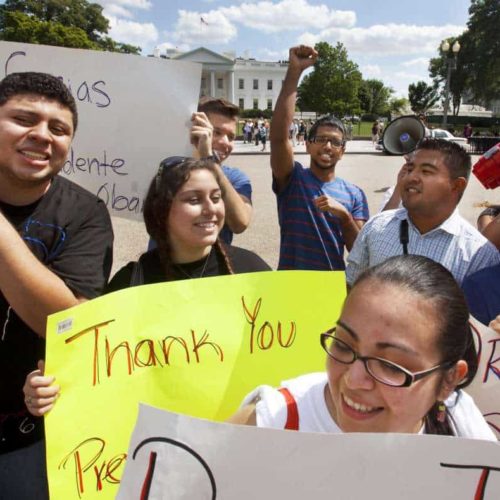Introduction
One of the nation’s top immigration think tanks estimates that 1.76 million undocumented people could attempt to benefit from an Obama administration decision to shield them from deportation, temporarily, and grant them two-year work permits. Moreover, the Migration Policy Institute in Washington, D.C. estimates in its new report that 58 percent of this population who are now between 15 and 30 years old are already in the U.S. labor force.
As of Aug. 15, the administration is opening up the process for certain undocumented youths brought here as children to apply for the two-year reprieve. It represents one of the biggest undertakings by U.S. immigration officials in years. It is not a program for permanent residency, but it does provide youths who meet the criteria temporary protection from deportation, as well as the ability to work legally and stop using fake Social Security cards or laboring off the books.
The Migration Policy Institute’s report includes state-by-state charts and other estimates that help paint a portrait of where and who the youths are. The report is based in part on data from the U.S. Census and the Bureau of Labor Statistics.
The institute estimates that California alone could have 460,000 potential applicants. Youths cannot apply until they are 15 years old, so applications will be accepted on a rolling basis. There is no deadline to apply. The limits are set by maximum age limits and other criteria.
The Obama policy, outlined in June 15 memo, is limited to youths who were brought here before they turned 16 and have lived continuously in the United States for five years since their arrival. The youths must also be in school or have graduated from high school or obtained a GED. They cannot be over 30 at the time of the policy was announced. And they must pass a biometric and national-security screening and cannot have committed certain crimes.
Employers and schools are going to be critical players in this process because youths will ask them to provide supporting documents proving residency and education claims. Youth advocates are concerned that employers get assurance that by helping youths, they won’t end up in trouble with officials who enforce laws against knowingly hiring illegal immigrants.
The application costs $465. Homeland Security’s U.S. Citizenship and Immigration Services (USCIS), which will screen applicants, relies on fees to pay for much of its work.
At an event Tuesday at the Migration Policy Institute, USCIS director Alejandro Mayorkas clarified that the administration’s policy actually includes an incentive to remain in school to obtain the temporary reprieve. If youths who have dropped out of high school go back to classes or pursue a GED, then can meet the criteria for eligibility and go ahead and apply.
Such individuals “must be in school the day they submit the application,” Mayorkas said. The Migration Policy Institute estimates that 350,000 youths who are between 16 and 30 could benefit from this.
Critics have argued that Obama’s action is an overreach f his authority, and a bid to increase his appeal among Latino voters in an election year.
At the Tuesday event, a former Department of Homeland Security principal deputy counsel argued that the program was within the administration’s right to exercise prosecutorial discretion. David Martin, the former deputy counsel, doubted that presumptive Republican presidential nominee Mitt Romney, if elected in November, would move to eliminate the program right away. “I think it would be hard for a new administration to come in and completely clear the decks on this,” Martin said.
Romney hasn’t explicitly said he would reverse Obama’s action, which is called Deferred Action for Childhood Arrivals, or DACA. But Romney has said that he opposes the DREAM Act, a bill in Congress that has idled for 10 years, and lost the strong support it once had among a few Republican senators. The proposal would allow certain undocumented youths to earn legal residency by attending school or serving in the military.
A Romney campaign immigration adviser, however, did issue a strong attack on the DACA program.
Kris Kobach, Kansas’ Republican Secretary of State, called the program “illegal” and “deeply troubling” in an exclusive interview with ThinkProgress. Kobach has been deeply involved in state and local-level immigration fights. He helped draft Arizona’s controversial state law requiring police to inquire about legal status if they suspect people officers stop might be undocumented. And he championed failed courts challenges to overturn Kansas and California state laws allowing undocumented college students who grew up in those states to pay in-state, rather than out-of-state tuition.
Read more in Education
Juvenile Justice
Mississippi town struggles with ‘school to prison pipeline’ charges
Department of Justice letter underscores tensions in Meridian
Juvenile Justice
Privatization fails: Nebraska tries again to reform child welfare
In 2009, Nebraska privatized its child welfare, now critics say it hasn’t worked


Join the conversation
Show Comments